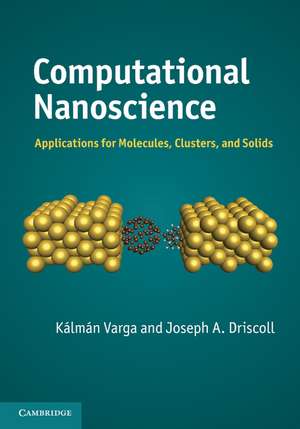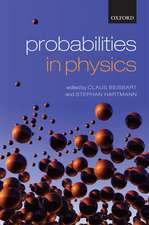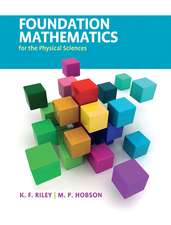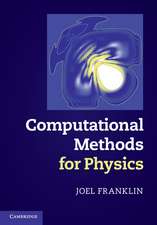Computational Nanoscience: Applications for Molecules, Clusters, and Solids
Autor Kálmán Varga, Joseph A. Driscollen Limba Engleză Hardback – 13 apr 2011
Preț: 623.77 lei
Preț vechi: 700.86 lei
-11% Nou
Puncte Express: 936
Preț estimativ în valută:
119.36€ • 127.64$ • 99.52£
119.36€ • 127.64$ • 99.52£
Carte tipărită la comandă
Livrare economică 18 aprilie-02 mai
Preluare comenzi: 021 569.72.76
Specificații
ISBN-13: 9781107001701
ISBN-10: 1107001706
Pagini: 444
Ilustrații: 175 b/w illus. 33 tables
Dimensiuni: 181 x 254 x 25 mm
Greutate: 1.02 kg
Editura: Cambridge University Press
Colecția Cambridge University Press
Locul publicării:New York, United States
ISBN-10: 1107001706
Pagini: 444
Ilustrații: 175 b/w illus. 33 tables
Dimensiuni: 181 x 254 x 25 mm
Greutate: 1.02 kg
Editura: Cambridge University Press
Colecția Cambridge University Press
Locul publicării:New York, United States
Cuprins
Preface; Part I. 1D Problems: 1. Variational solution of the Schrödinger equation; 2. Solution of bound state problems using a grid; 3. Solution of the Schrödinger equation for scattering states; 4. Periodic potentials: band structure in 1D; 5. Solution of time-dependent problems in quantum mechanics; 6. Solution of Poisson's equation; Part II. 2D and 3D Systems: 7. 3D real space approach: from quantum dots to Bose–Einstein condensates; 8. Variational calculations in 2D: quantum dots; 9. Variational calculations in 3D: atoms and molecules; 10. Monte Carlo calculations; 11. Molecular dynamics simulations; 12. Tight binding approach to electronic structure calculations; 13. Plane wave density functional calculations; 14. Density functional calculations with atomic orbitals; 15. Real-space density functional calculations; 16. Time-dependent density functional calculations; 17. Scattering and transport in nanostructures; 18. Numerical linear algebra; Appendix: code descriptions; References; Index.
Notă biografică
Descriere
Describes advanced algorithms for students in computational physics, quantum mechanics, atomic and molecular physics, and condensed matter theory.











